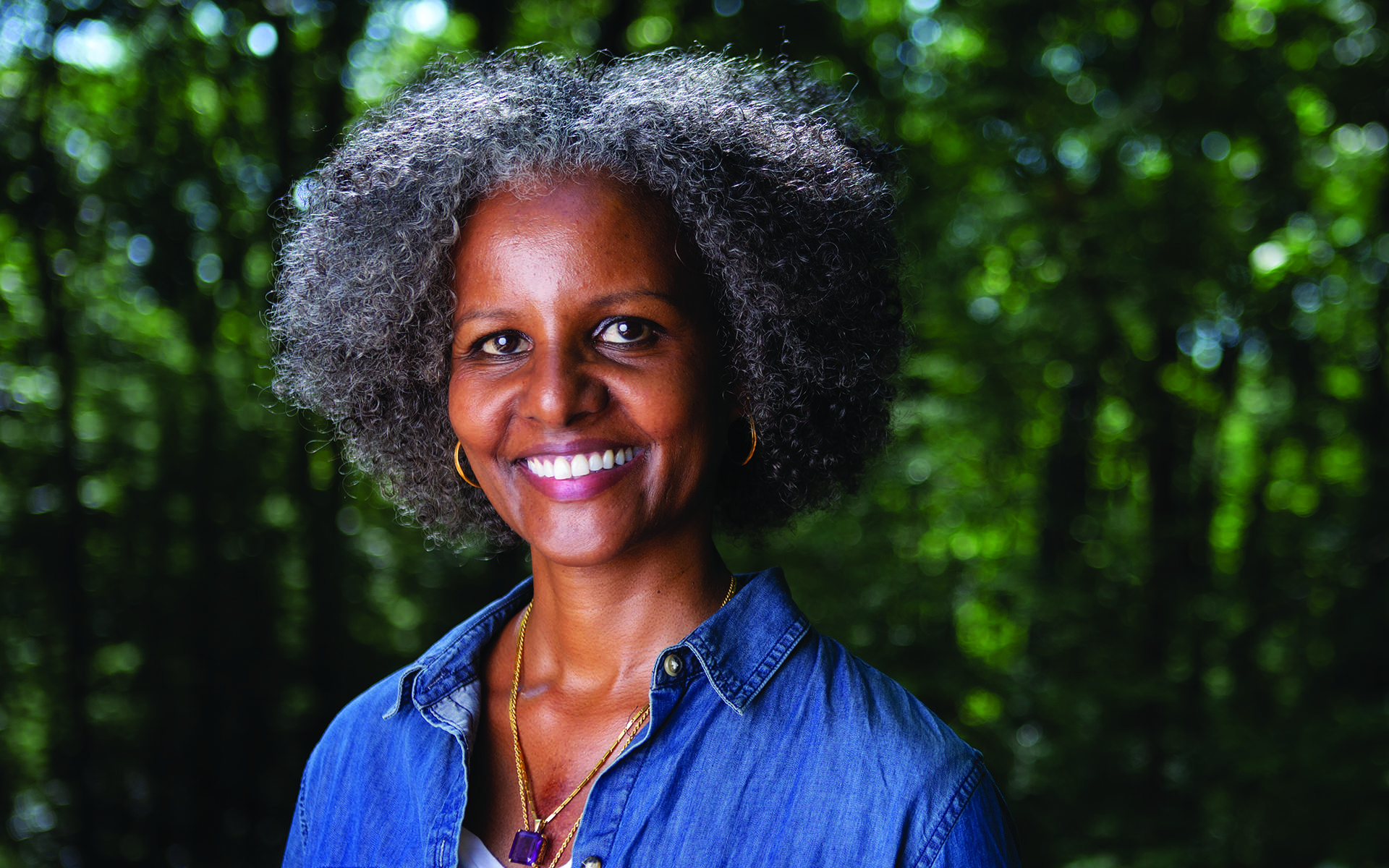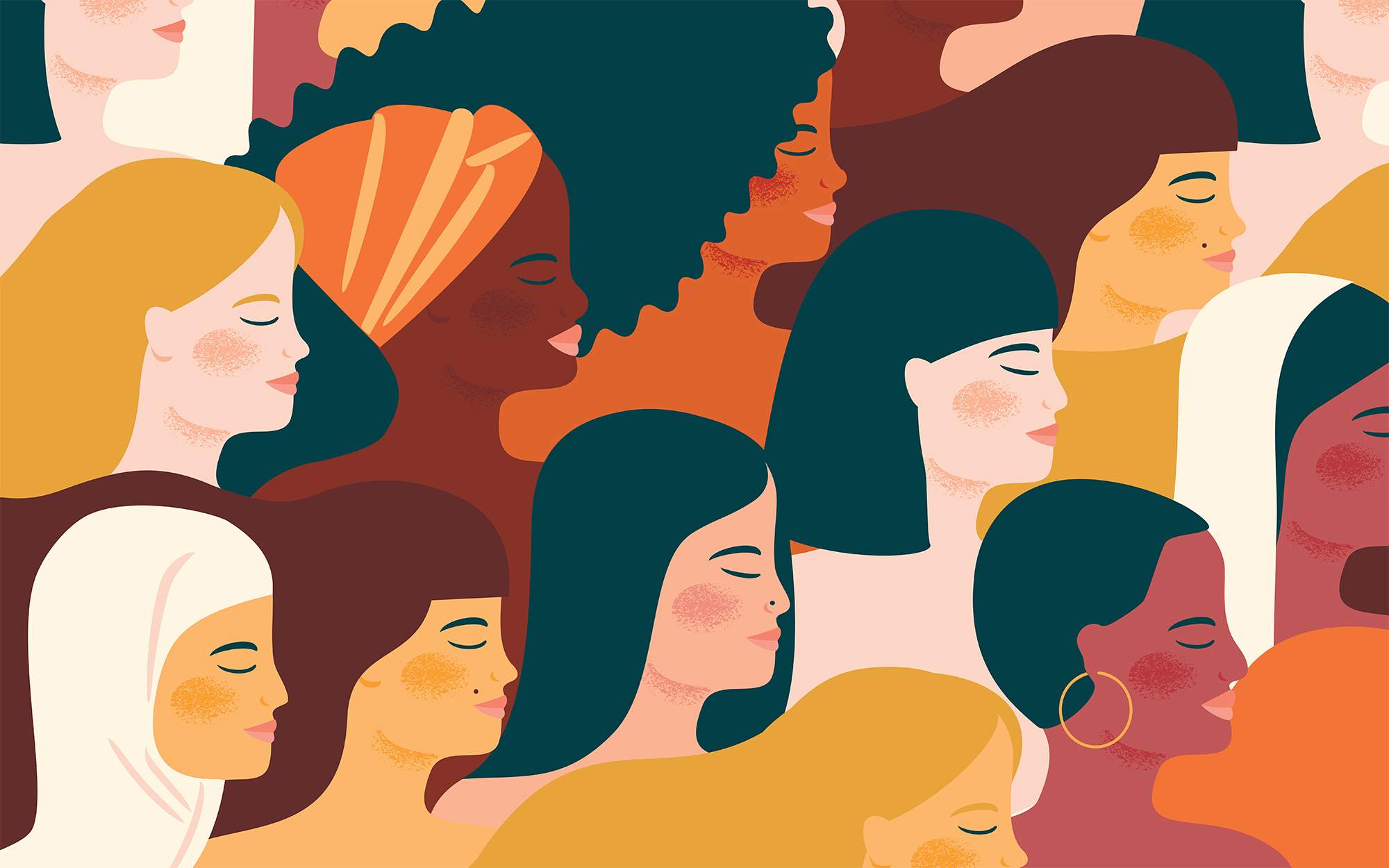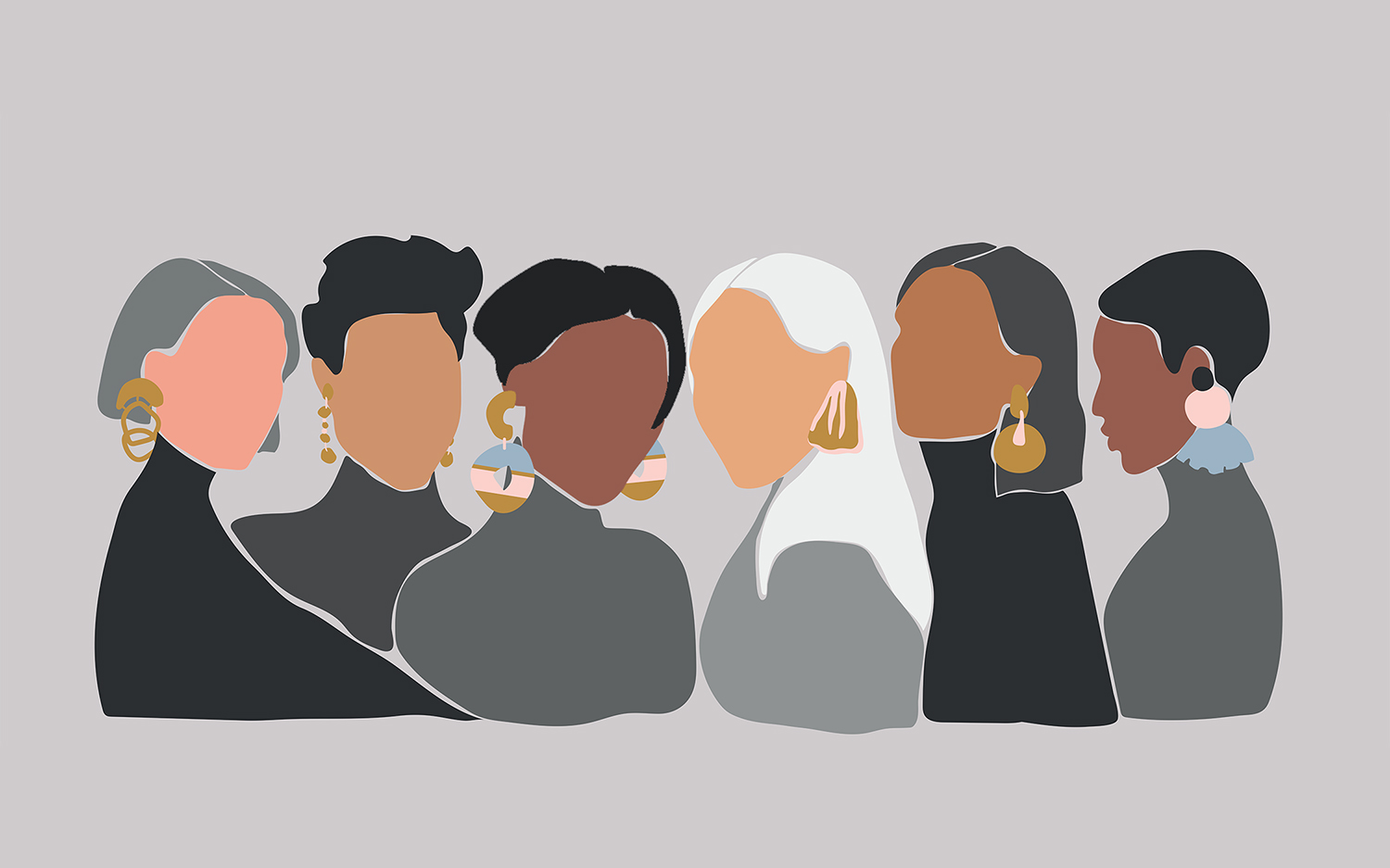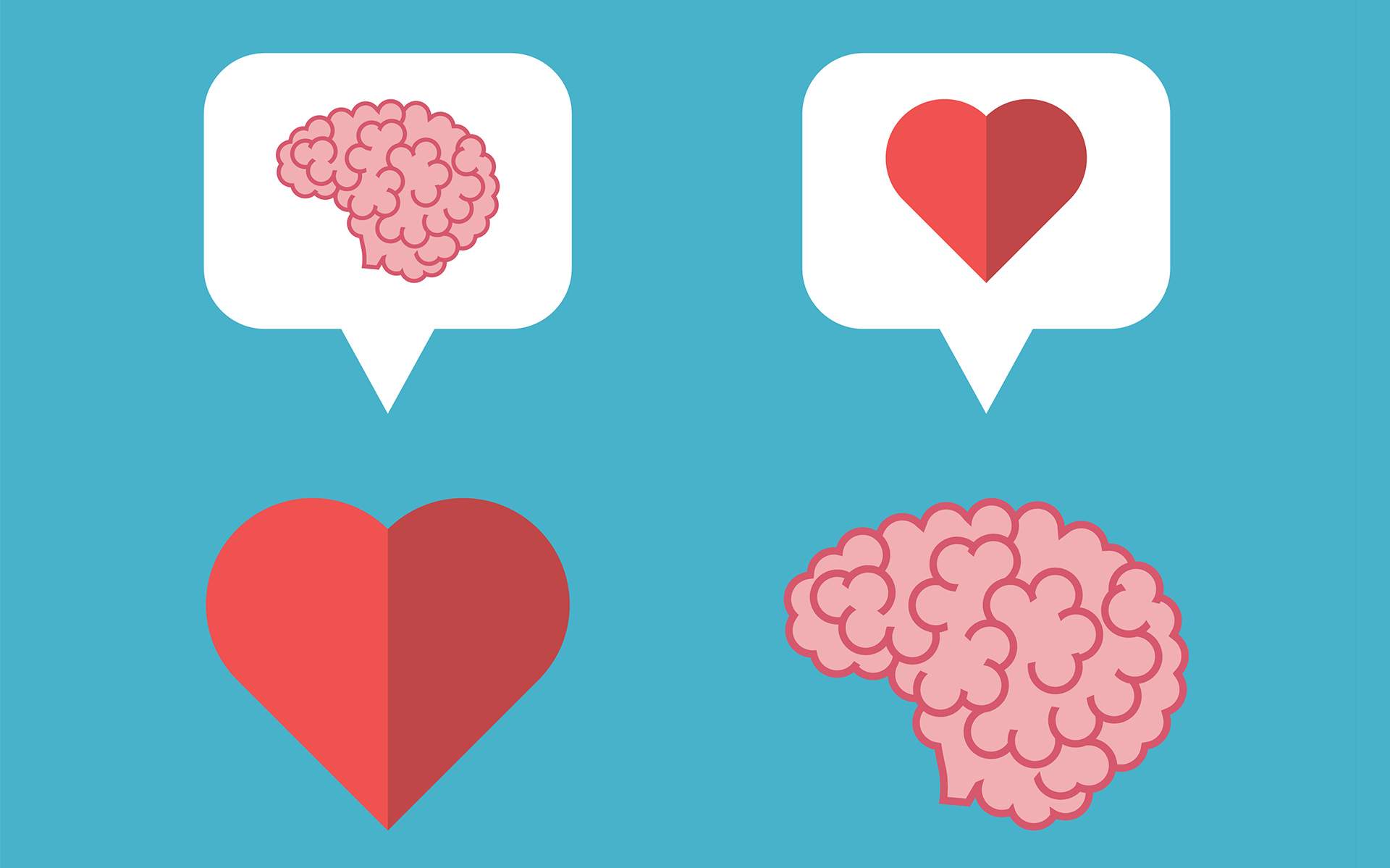Belonging is not dependent on things being as we want them to be. It is not necessary to achieve (some definition of) success, behave like everyone else, have the perfect partner, be the perfect size or shape. In fact, the forces of oppression need not even magically disappear (though that would be cool) for us to experience belonging. And get this: We also don’t need to feel belonging to belong. Belonging is truth and it is the fundamental nature of reality right here and now, whether we feel it or not. For me, it’s often been not.
The forces of oppression need not even magically disappear (though that would be cool) for us to experience belonging.
I explore belonging precisely because for most of my life I felt I did not belong anywhere—forget everywhere. I was plagued with feelings of not belonging no matter where I went. I was a toddler when my family emigrated from Ethiopia in the early seventies (I am half Ethiopian and half Eritrean). I felt out of place in an American culture that was a lot less diverse than it is today and in an immigrant community that was much smaller than it is now. I grew up Black in white neighborhoods, and I didn’t feel like I connected to any one racial culture. I was a girl who was not interested in girlie things (so, yes, on top of everything else, I was the tomboy Black immigrant girl).
The Truth of Belonging
“Difference” does not equal “not belonging,” but as many of us live farther away from our families and as we connect to multiple communities and cultures, our sense of belonging feels tenuous. Race, gender, class, sexual orientation, ability, religion, ethnicity, culture, size, politics, profession, lifestyle, and even clothing can highlight differences that delineate borders between us that become (false) barriers to belonging. Into my thirties I assumed there were certain ways to be(long). I did not seem to get them. I was too blackish for the white folks. Not Black enough for the Black folks. Too Americanized to get my roots. Too immigrant to get American idioms. Too feminist for heels. Too femme not to do my brows. Too intellectual for the intuitives. Not sufficiently read for the academy. Too political for my party friends. Not radical enough for my activist friends. Too hetero to call myself queer. Too queer to care about most hetero nonsense. Too woo-woo for the skeptics. Not spiritual enough for the renunciates. I had too much money. Not enough.
Race, gender, class, sexual orientation, ability, religion, ethnicity, culture, size, politics, profession, lifestyle, and even clothing can highlight differences that delineate borders between us that become (false) barriers to belonging.
Lifelong practice with feelings of not belonging has made me a belonging specialist. Almost everything I’ve pursued in life connects to this longing to belong. I majored in religious studies, feminism, race, and cultural studies searching for answers about belonging. I journaled, doodled, and made videos about belonging. I smoked it, drank it, popped it, and snorted it in an attempt to belong. I went to countless classes, seminars, and retreats chasing belonging. I practiced yoga and meditation, seeking out teachers in my quest to find belonging. I protested and petitioned to belong. I fasted and juiced to belong.
My friend Nidhi describes not belonging like going to the mall gift shop every week and spinning the display with the personalized key rings, searching for your name even though you know you’ll never find it. We search externally for belonging (hint: It’s not out there). It took me time and practice to unlearn this outside searching, to understand that the key to belonging is within. Belonging is my nature: Therefore, I belong everywhere and so does everyone else. Including you.
Feeling Like You Don’t Belong Anywhere
But at some point, in your life or in the past fifteen minutes, you have probably felt you don’t belong. Maybe you felt insecure, angry, anxious, fearful, sad, disconnected, frustrated, or all of these things at once. It’s not wrong to have these feelings come up. The only problem with feelings is thinking there’s a problem with feelings. We mostly don’t like unpleasant feelings and want to get rid of them.
You’re not alone in feeling unpleasant feelings. There’s a lot to feel unpleasant about (and a lot to which we don’t want to belong). Hate crimes are on the rise in the US. Politics are polarized everywhere, with xenophobia and racism fueling a resurgence of populism across the world. A global pandemic altered all of our lives. Uprisings ignited across the world in defense of Black lives. Our planet is in severe environmental crisis and there is no agreed-upon remedy for the fact that we are hurtling toward destruction.
Feeling bad can make us feel worse. Anxiety and depression have skyrocketed among young people, affecting close to one in three young adults. Loneliness is at epidemic proportions as studies show that social isolation increases stress hormones and can even lead to illness and premature death. Though US rates are the highest, governments around the world are addressing loneliness as a crisis (and this was before corona shutdowns). The UK created an entire ministerial commission on it. While loneliness is exacerbated for older people by physical isolation, some speculate it plagues young people even more. Not belonging doesn’t only affect people who are alone; one study shows that half of those reporting chronic loneliness are married people.
If we belong to it all, we all belong to this, too.
You Do Belong
Do you believe it? Do you believe that you belong? Because you do. You belong. Everywhere. Yes, you—with all your history, anxiety, pain. Yes, everywhere—in every culture, community, circumstance. You belong in this body. You belong in this very moment. You belong in this breath…and this one. You have always belonged.
You are not separate. You never were. You never will be.
When I forget, I recall this: Belonging is an imperative—be longing. Our desire to belong is what makes us human precisely because feeling like we don’t belong opens us to belonging. If we didn’t long for it, our species would have perished. Our longing to belong is, as Irish poet David Whyte says, one of our “core competencies.” Try it right now. Connect to any ways you feel you don’t fit in, aren’t accepted, or are separate. Can you sense that longing for connection within you? Is there a part of you that knows the universality of that longing? Can you recognize the humanness of that desire?
If we don’t feel belonging, it turns out we can learn to feel it because it’s wired into us. Kindness and generosity are encoded within each one of us. And when we feel belonging, we are able to meet people, situations, difficulties, joys… life with more kindness, generosity, and ease.
At the heart of not belonging is what I refer to as “the delusion of separation”—the belief that you are separate from other people, from other beings, and from nature itself. And it is a delusion. You are not separate. You never were. You never will be.
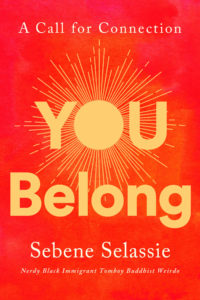
Adapted from YOU BELONG by Sebene Selassie,
reprinted with permission from HarperOne, an
imprint of HarperCollins Publishers.
Copyright © 2020.
read more
A Practice to Reclaim Your Joy with Sebene Selassie
Experience the truth of your inherent belonging by connecting to the essential elements of the earth and remembering that we’re all made of the same stuff.
Read More
12 Powerful Women of the Mindfulness Movement: 2020
In our second annual focus on women leaders of mindfulness, twelve women share how their deep practice has shaped the world they see—and the one they’re working toward.
Read More
10 Guided Meditations from the Powerful Women of the Mindfulness Movement
As we celebrate the women leaders of mindfulness, we invited teachers, researchers, and activists to share guided meditations that reflect what they’ve learned from their years of deep practice.
Read More


